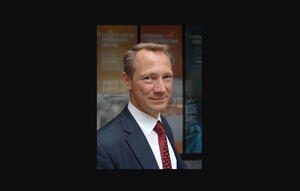F4E appoints Henrik Bindslev as new Director
29 Oct 2012
Henrik Bindslev was appointed last Friday 25 October as the new director of the European Joint Undertaking for ITER and the Development of Fusion Energy (Fusion for Energy). He is currently the vice dean for Research at Aarhus University, Faculty of Science and Technology.
Stuart Ward, chair of the Fusion for Energy Governing Board, took the opportunity to congratulate Henrik Bindslev on his new position and thanked all members of the Board for their collaboration taking together this important decision.
"I am honoured to have been appointed director of Fusion for Energy at a time that Europe's contribution to ITER enters a decisive stage and rapid progress will be made on all fronts. It is the moment to engage actively with Europe's industry and fusion community to honour our commitment to this prestigious international project," said Bindslev.
Henrik Bindslev has been engaged in energy research for more than 20 years and has considerable experience in research management, both in Denmark and internationally. He is currently vice dean for research at Aarhus University, Faculty of Science and Technology and past chair of the European Energy Research Alliance (EERA). He is a delegate to the European Strategy Forum on Research Infrastructures (ESFRI) and chairman of ESFRI's Energy Strategy Working Group.
Previously, he was the director of Risø DTU, the Danish National Laboratory for Sustainable Energy, managing 700 staff.
He was educated at Denmark's Technical University and completed a DPhil in Plasma Physics at the University of Oxford. He worked as a fusion researcher at different facilities including ten years at the Joint European Torus (JET), Europe's biggest fusion research device, and has published more than 150 papers.
The director is appointed by Fusion for Energy's Governing Board for a period of five years, once renewable up to five years. The appointment is made on the basis of a list of candidates proposed by the European Commission after an open competition, following a publication in the Official Journal of the European Communities.


